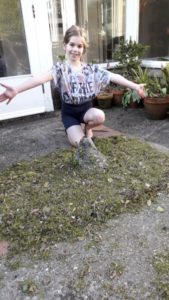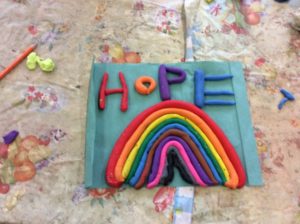
Author: Sallie Roberts
Split Pin Chick in Egg
Monday 30th March 2020
Today we have been having some fun making these Easter chicks.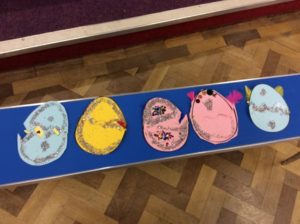
Surprise!!!!
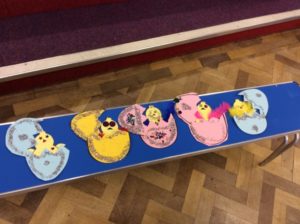
Monday 30th March 2020 – Friday 3rd April
Good morning everyone!
I have had some lovely work sent in to school this week, which can be seen on Grinshill class page. You all look like you are having fun!
This week I am putting a few things on for you to try.
1. Daily activities
2. Online activities e.g. Times tables Rock Stars, Reading eggs and education city (I have loaded several English and maths activities)
3. Can you make a sock puppet? Try this link
https://www.wikihow.com/Make-a-Sock-Puppet
You could them act out a scene from a favourite book or film. I may make a Harry Potter set 🙂
Please post your pictures of your puppets to school admin
4. You could decorate some stones with thoughtful words, HOPE, LOVE
5. You could take inspiration from our wall on the playground and decorate an area at home (Check with mummy and daddy first) Or upscale an old picture frame.
5. You could make an Easter card. Try this on twinkle I will add the link.
T-T-18125-Split-Pin-Chick-In-Egg-Craft-Instructions_ver_1
6. I have also included a selection of Easter activities.
t2-t-18001-ks2-top-10-easter-activities-resource-pack-english_ver_1
7. You could also make an Easter Bonnet/ hat
8. Paint a Spring Themed picture
9. Try and draw a member of your family/ pet, then you could paint it in different colour like Andy Warhol (Pop Art)
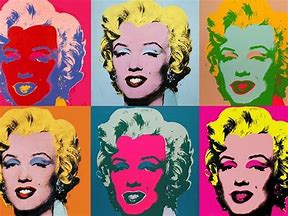
10. Make some Easter Nest cakes
I would love to see what you make., I am not in everyday but if you send to the office I will pick it up on the days that I am in school.
Enjoy!
Please remember that you are not expected to work all day, enjoy spending time with you family, get outside, play a board game together.
Spellings Monday 30th March 2020
Year 2
even, break, steak, great, move, prove, improve, sure, sugar, eye
Year 3
address, busy, business, heart, fruit, breathe, strange, complete, extreme, forwards
Year 4
length, strength, purpose, history, different, difficult, separate, suppose, therefore, knowledge
Grinshill work Wednesday 25th March to Monday 30th March
For the next few days I am directing you to the ‘Twinkl’ site, you do not have to be a member at the moment as they have relaxed the rules.
Type in the search bar – Home Learning Pack year 3 or Year 4
A huge folder will be available to download, with a mixture of maths, English, science and craft.
These are the links, just in case
cfe2-e-301-sight-and-sound-writing-prompts-activity-sheets
t2-m-254573-year-3-springthemed-maths-activity-booklet-english
t2-m-254579-the-mystery-of-the-missing-shield-maths-mystery-game-english
t2-pa-123-year-3-reading-revision-activity-mat-pack-3
tp2-s-012-science-animals-including-humans-year-3-unit-home-learning-tasks-
TP2-S-031-PlanIt-Science-Year-3-Plants-Unit-Home-Learning-Tasks
T-T-17826G-Easter-Chick-Paper-Model-Instructions
You can still carry out daily tasks, however, if you fancy a change try the Twinkl site.
Pictures and work from home – Grinshill
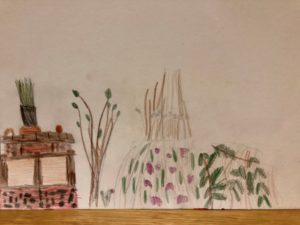
Thank you Gracie!
What a beautiful picture!
Tuesday 24th March 2020
Everyday you should be doing the following before any extra classwork, (you don’t have to do it in this order).
Spelling – (See list from yesterday)
10 words from the year 1,2,3 or 4 list. (I will include the list for children to see)
Look, cover, say, write, check – x 5 for each word
Then put each word into a sentence
Reading – 20 minutes (at least) every day
Also Reading Eggs activities
Handwriting – bomereheathschool.org.uk/…/Joined-handwriting-upper-and-lower-case-letters.pdf
Write three lines of each word from your daily spellings everyday in joined writing and the sentences you made. (In your exercise books)
Write out/ copy in joined handwriting, one paragraph from your reading book each day.
Times Tables –
Use ‘Times Tables Rockstars’ to help you speed up!
Write out and learn times tables for x2, x3, x4, x5, x6, x8, x10 and the equivalent division facts. If you know these really well and can answer any fact within 3 seconds go on to learn the rest x7, x9, x11, x12
Optional – Diary Writing –
Keep a diary of what you do each day, how you feel and anything interesting that happens.
Once you have completed daily activities do the following:
Education City x 4 maths activities (We are seeing that this is very busy in the morning, so try this in the afternoon or evening)
Project (For this week)
As we have been discussing rocks in our science work, I would like to see how many of you can make a working volcano. Please send pictures or videos to the school. Some great links online.
If you want to measure the height of the volcanic eruption please do so and send it to me and we will see who the winner is. 🙂
You can also leave parts of your lava to cool and see which rocks you can make.
Can’t wait to see these!
https://arts.onehowto.com/article/how-to-make-an-erupting-volcano-at-home-4005.html
Monday 23rd March 2020 – Grinshill
Morning everyone!
- Join us at 9am for PE with Joe Wicks- YouTube channel
- Complete daily activities that are listed on previous post.
- Today there are 2 extra activities around English on Education City to complete.
- It would be nice to draw/ paint a picture of your garden today. (Take a picture and send it to school email)
